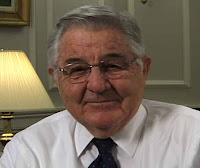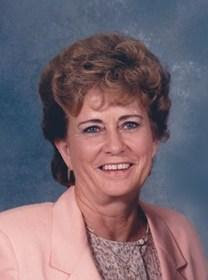By Suzy Barile
The phone rang at 11:27 a.m. Friday and my daughter asked,
“Did you hear?”
I'd heard.
“Bill Friday died this morning,” she said.
I knew. And she knew that I knew.
Had my daughter been at UNC-Chapel Hill when Friday was assistant dean of students, or when he was assistant to the President of the Consolidated University, or when he was its secretary, or when he served 30 years as system president, her attention to his death would be understandable.
Had my daughter been at UNC-Chapel Hill when Friday was assistant dean of students, or when he was assistant to the President of the Consolidated University, or when he was its secretary, or when he served 30 years as system president, her attention to his death would be understandable.
Jen didn’t graduate from UNC-Wilmington until 2004, long after Friday had retired
as the second-longest serving UNC president since David L. Swain. But ever since she was a little girl, as the fourth-great granddaughter of
Swain, she’d been regaled with anecdotes of Swain’s
1835-68 service, with tales of when her Granny and Granddaddy were UNC
students, and with stories of my college days in Chapel Hill.
The
most notable story was about Parents Weekend of either my junior and
senior year. My parents were
in town, and as we strolled back across campus after the football game, a man
hailed us.
“Hello,
Don,” he said to my dad. And to my mom: “Hello, Wuff.”
It
was Bill Friday, and he had not seen them in nearly 25 years when they
were students and he was assistant dean. Because both were staff writers
for The Daily Tar Heel, they had
frequent interaction with him.
That
he would remember their faces and their names was a marvel to me. Jen always
loved that story.
But she also benefited from Bill Friday's work.
But she also benefited from Bill Friday's work.
After he left his post as
system president, he didn’t leave North Carolina and its students behind. He
fought to keep college affordable, and to decrease illiteracy and help reduce
poverty. He brought stories of North Carolina into homes across the state with
his public television program “North Carolina People with Bill Friday.”
Hundreds
of thousands of North Carolina students have enjoyed the education they have
because of his tireless work on their behalf.
Yes, Jen knew Bill Friday.
My
family’s story of his long memory, and his service and
willingness to help others, is only one of many being shared with students of
all ages as we mourn his death. Yet in that sadness, I can’t help but think
he’s up in Tar Heel Blue heaven – enjoying a Wolfpack Red sunset (he did his undergrad at NC State) – and sharing tales
with his long-serving predecessor, my great-great-great grandfather, David L.
Swain.






